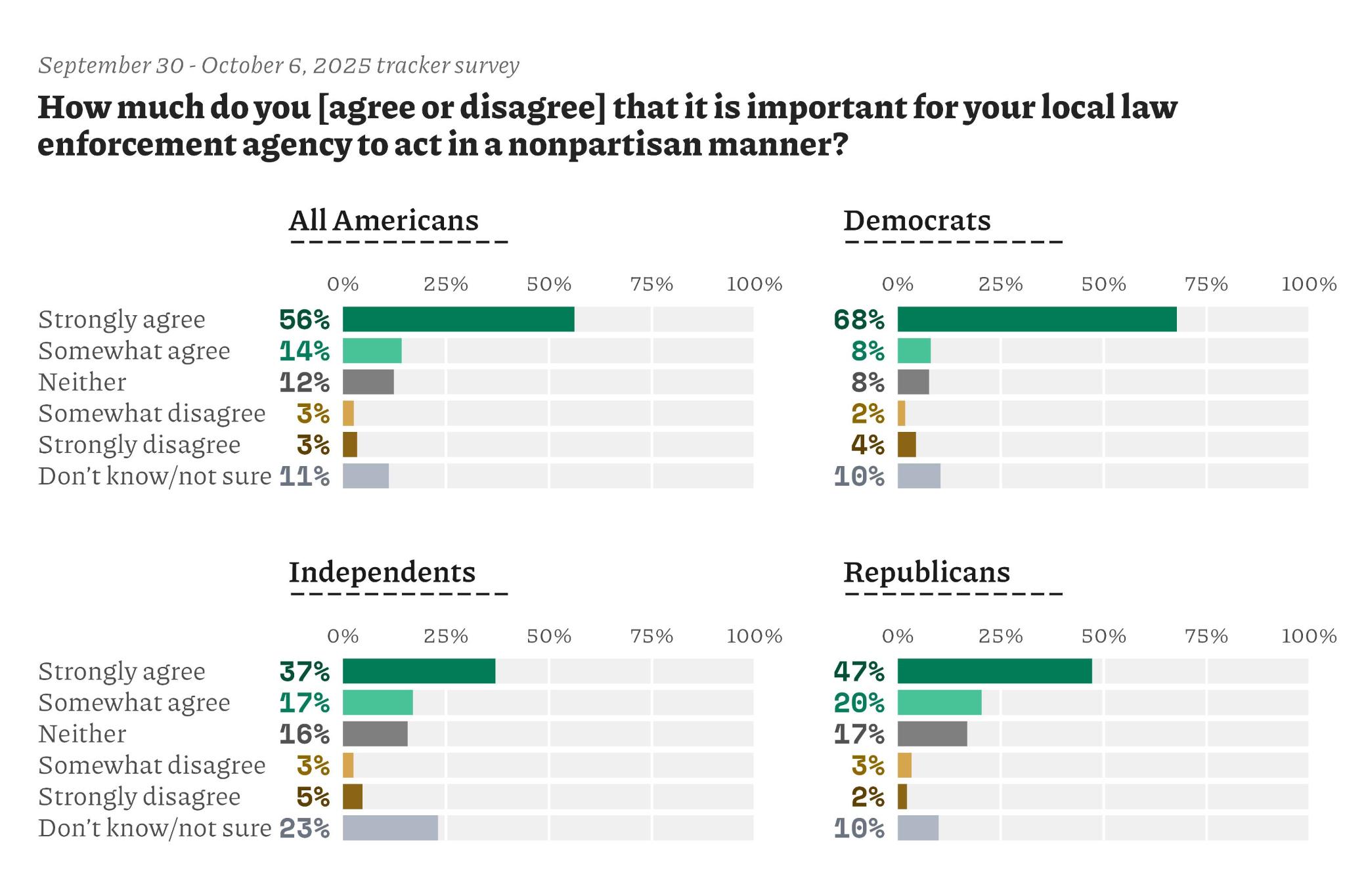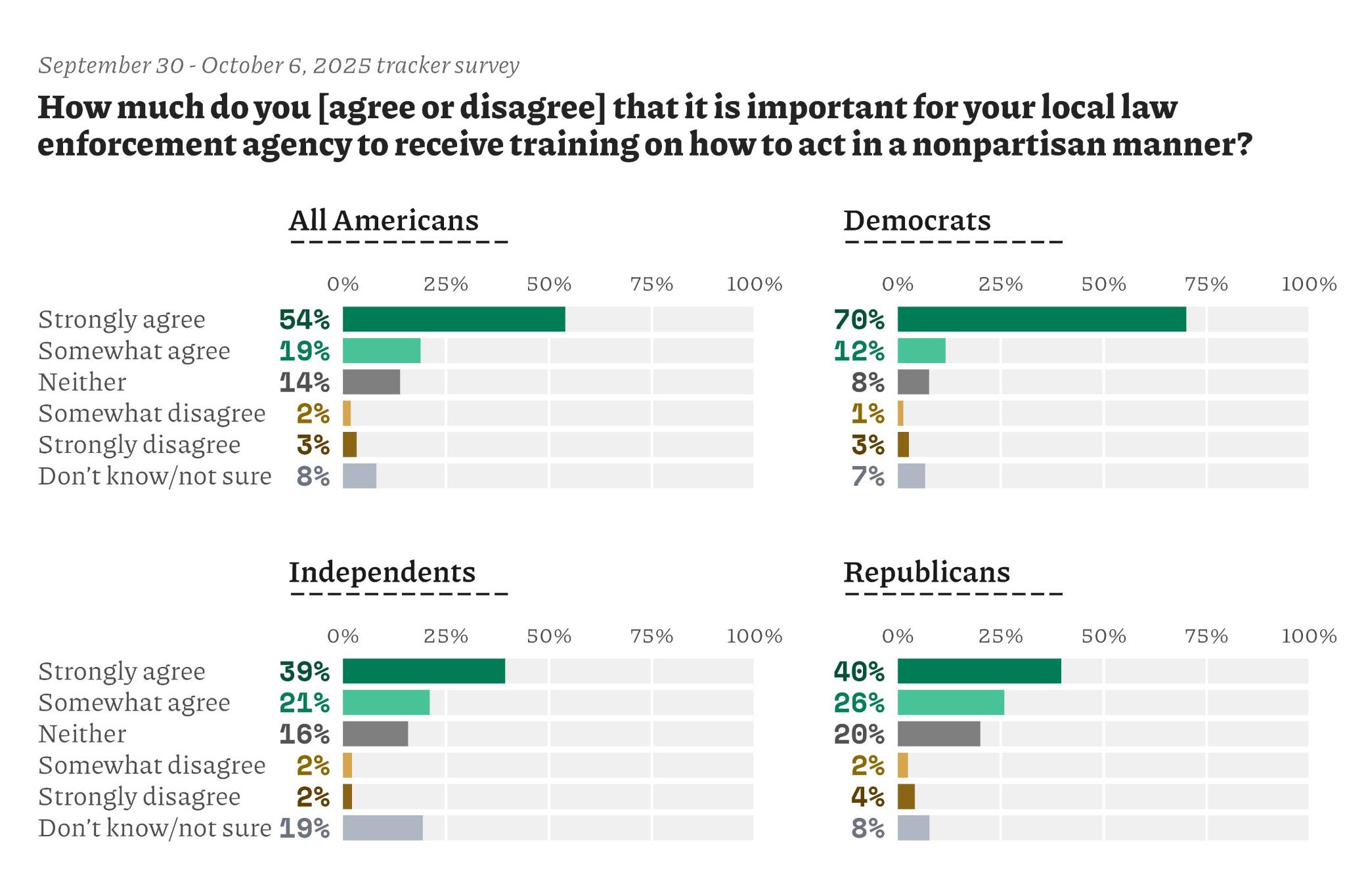Americans Want Nonpartisan Local Law Enforcement
In This Resource
It’s clear that Americans agree that partisan politics should have no bearing on how local law enforcement agencies protect public safety in their communities.
Americans across the political spectrum want nonpartisan local law enforcement agencies. A recent States United poll backs that up, showing that Americans overwhelmingly agree that local law enforcement should act and be trained to act in a nonpartisan manner.
States United partnered with YouGov on a national survey of 1,552 adults from Sept. 30 through Oct. 6, 2025, to better understand Americans’ views on this issue.
- Seven in 10 Americans agree that it’s important for local law enforcement agencies to act in nonpartisan ways. Agreement is high regardless of political party: 76% of Democrats, 54% of independents, and 67% of Republicans either strongly or somewhat agree with that sentiment.
- A large majority of Americans (73%) agree that it’s important for local law enforcement agencies to receive training on how to execute their duties in a nonpartisan manner. Again, agreement is strong across Democrats (82%), independents (60%), and Republicans (66%).
When Americans were asked how much they agree or disagree that it’s important for local law enforcement agencies to act in nonpartisan ways, agreement that they should do so is high: 7 in 10 say that they somewhat or strongly agree. More than half of Americans (56%) say that they strongly agree. Just 6% say express some level of disagreement. Majorities of Democrats (76%), independents (54%), and Republicans (67%) say that they agree that local law enforcement agencies should act in a nonpartisan manner, showing this view is held by a wide array of Americans from all political backgrounds.

When asked how much Americans agree or disagree that it’s important for local law enforcement agencies to receive training on how to act in a nonpartisan manner, a large majority of Americans (73%) say that they either somewhat or strongly agree with this statement. As do majorities of Democrats (82%), independents (60%), and Republicans (66%).

These data are taken from a States United survey based on 1,552 interviews conducted on the internet of U.S. adults. Participants were drawn from YouGov’s online panel and were interviewed from September 30 – October 6, 2025. Respondents were selected to be representative of American adults. Responses were additionally weighted to match population characteristics with respect to gender, age, race/ethnicity, education of registered voters, and U.S. Census region based on voter registration lists, the U.S. Census American Community Survey, and the U.S. Census Current Population Survey, as well as 2020 presidential vote. The margin of error for this survey is approximately ± 2.8 percentage points, though it is larger for the analysis of partisan subgroups described above. Therefore, sample estimates should differ from their expected value by less than the margin of error in 95% of all samples. This figure does not reflect non-sampling errors, including potential selection bias in panel participation or measurement error.
In keeping with best research practices, we classify independent voters who reported “leaning” toward either the Democratic or Republican parties as partisans. Therefore, we define “independents” as those respondents who professed no partisan attachments whatsoever.